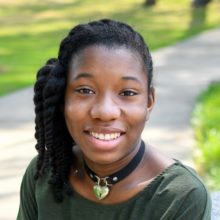I’m an African American lady from Hoke County and am at present a scholar at Sandhills Community College (SCC), a majority white institution. Whereas acquiring an affiliate in digital media manufacturing, I started to analysis cultural proficiency and cultural competence — and the way they’ve associated to my life experiences.
Cultural competence is the supportive practice we use to value others in cross-cultural settings. This requires us to remain educated on cultures past our personal and take steps to actively keep away from othering particular people.
In our training programs, this implies utilizing inclusive curricula, offering equitable entry to sources, and permitting house for open discussions.
Dr. Hakeem Leonard, an assistant provost for inclusion, variety, and fairness at Shenandoah College in Virginia wrote about cultural awareness in higher education spaces and the impact that it has on college students. He in contrast cultural consciousness to, “Mirrors, Home windows, and Sliding Glass Doorways,” which I’ve paraphrased under:
- Mirrors symbolize the validation college students expertise from the issues they hear, see, and really feel.
- Home windows symbolize the alternatives that college students need to share their very own experiences and relate to others.
- Sliding glass doorways symbolize the demonstrations, educating strategies, and areas created for college students to maneuver freely by means of the mirrors and home windows offered to them.
My mirrors, home windows, and doorways
My mirrors turned the professors that labored with me after class, employees who shared their very own racial challenges, and African Individuals working in training that gave me hope for my very own profession — all of whom made an effort to validate me and my alternative for fulfillment. I’m a agency believer that the enemy of unity is solely remoted pondering. All of us suppose in a different way, however connecting the similarities and variations between me and my friends’ ideas, opinions, and experiences permits me to narrate to them extra as human beings moderately than being divided by social constructs.
My home windows have been with the ability to share my expertise with DEI (variety, fairness, and inclusion) committee members, communicate at scholar authorities conferences, and use different platforms that took the time to listen to my story and share suggestions on my ideas and opinions.
Lastly, one among many sliding glass doorways was the Efficient Communication Affiliation, a campus membership that allowed me and others to host SCC’s first annual Black Historical past Digital Pageant. This pageant occasion allowed college students and college to share their experiences and procure their very own validation within the sharing of others.
According to a report by Growing a Consultant and Inclusive Imaginative and prescient for Training (DRIVE), a job power established by Gov. Roy Cooper, “The 2018-19 faculty yr signifies that 53 p.c of scholars are nonwhite, in comparison with solely 22 p.c of educators.” Even past main and secondary education, college play a essential function in training and the way college students study and develop. Though the chance for training has change into extra accessible to college students, educators of color are still underrepresented.
As a scholar nonetheless figuring out and creating my tradition, it’s vital to me to attach with function fashions that validate the similarities and variations in our cultures. It’s encouraging to know college which are prepared to interact with me and provides me the house to share my experiences and ever-evolving tradition with them.
With all of the struggles that include striving in the direction of and finishing a level, I’m grateful to have had the chance to interact in workshops and communicate with folks of coloration who’ve made it into the fields I’m pursuing. It’s very reassuring to know that my training doesn’t need to be outlined by the colour of my pores and skin.
Cultural proficiency within the classroom
After researching the subject, I’ve realized {that a} wholesome culturally proficient atmosphere wants three truths to operate correctly: inclusion to forestall othering, illustration with out tokenism, and — most significantly — constant software.
Othering begins with an “us vs. them” mind-set. Earlier than beginning at SCC, I had developed a really slim idea of how I’d be handled at a majority white establishment. From my small neighborhood bubble, my base expectation was to be handled unfairly. This mindset left my window of belief restricted and impacted my educational success.
Nonetheless, I had white professors that reached out to me, engaged with me, and cared about my success as a person, which shifted my notion from othering to inclusion. I started to see folks, good or unhealthy, for what they have been moderately than making their pores and skin coloration or tradition a barrier.
Lastly, I try to observe cultural proficiency persistently. It might be unwise of me to dismiss the racism that’s nonetheless prevalent round me. I can’t merely deny the reality of racial inequity or surrender my experiences with racial ignorance. Nonetheless, I can nonetheless worth others and study to know and settle for others. Whereas nonetheless studying myself, I try to coach others on the non-public experiences I’ve gained for myself, my training, and my tradition.
Being uncovered to various areas is at all times a chance to develop. I need to spotlight that misconceptions and implicit bias will at all times be a two-way avenue. Whether or not these biases are born by means of expertise or concern of the unknown, taking the time to rethink how I worth others has been essential to my success.













